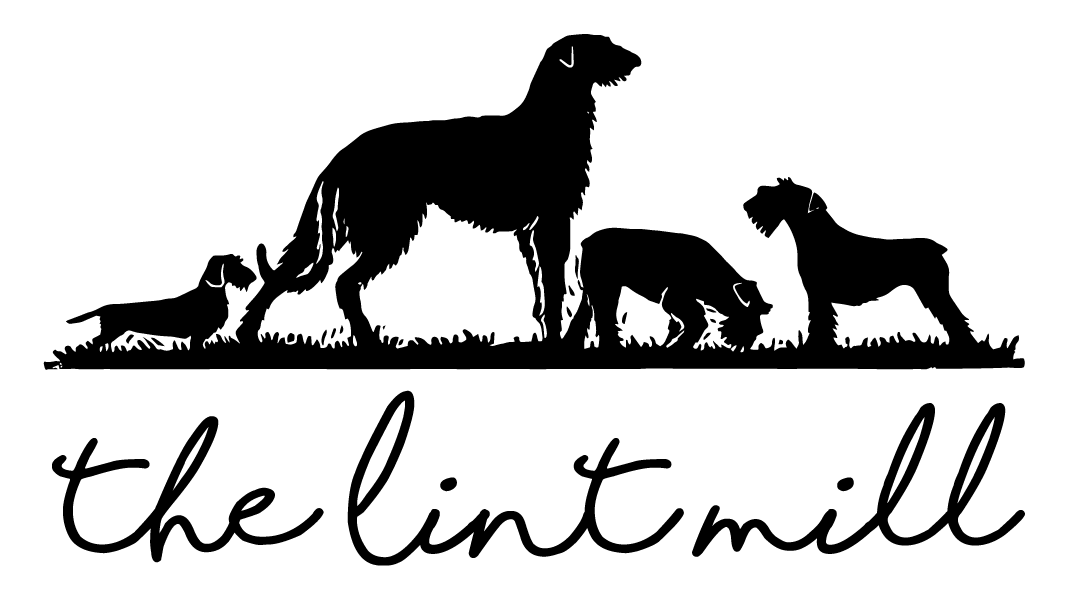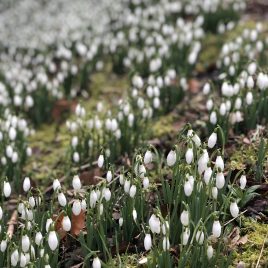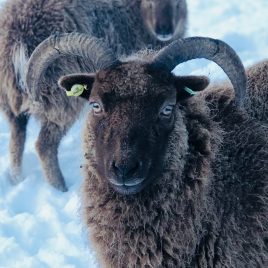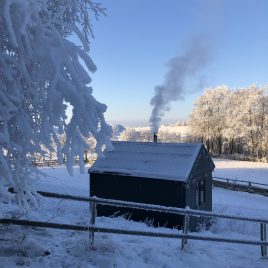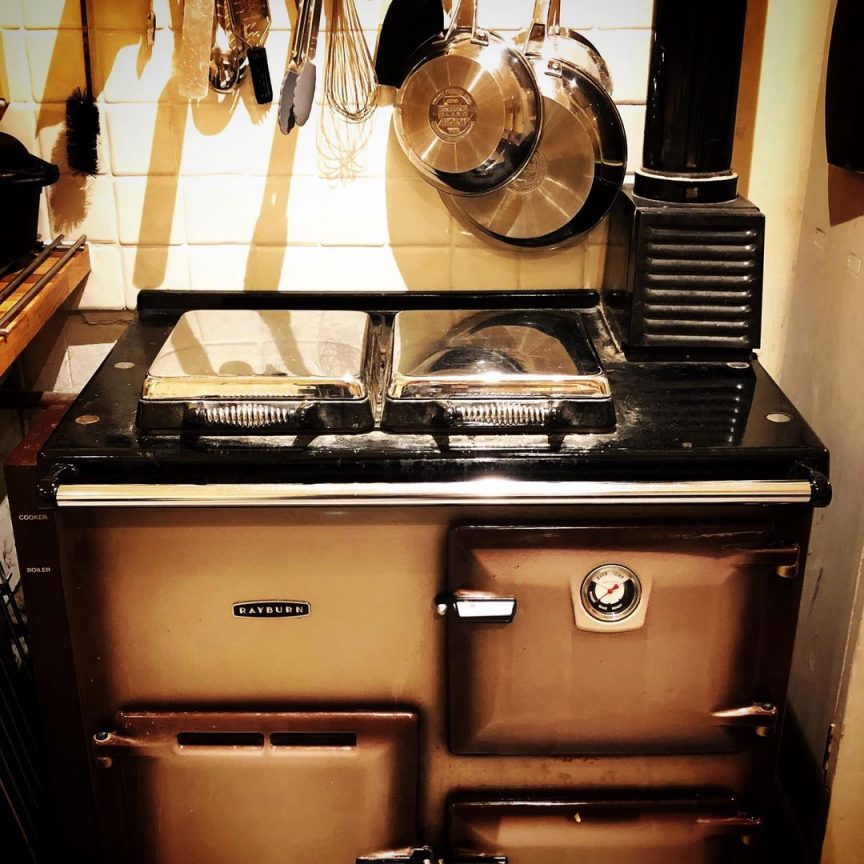
Timefulness
The mood on the smallholding changes at this time of year. After a busy summer (with B&B guests and lots of successful courses) where the fields have literally been buzzing with life, things start to quieten down, plants and mini-beasts all enter a period of dormancy and we begin to see the holding in a new light.
Without the abundant growth of summer we can somehow see all the jobs that need to be done more clearly and we see the months ahead as a time to do them somewhat at our leisure. From giving the compost bins some much needed attention, to mulching the kitchen and cottage gardens, repairing fences and continuing to build dead hedges around the place, there is always so much to do but somehow it feels as though the space opens up to do them.
This year we are using our ‘down time’ to have some work done on our kitchen. At long last (and after lots of research) we are finally saying goodbye to our old, trusty Rayburn range cooker. It was the kitchen workhorse long before Colin and I moved to The Lint Mill (it’s about 40 years old) and I can hardly bear to imagine how many wonderful dinners have emerged from it’s little ovens. However, we are always working to reduce our dependence on fossil fuels and being an inefficient oil guzzler, it was time to part ways with the Rayburn. We are replacing it with a fully controllable Everhot electric cooker, which is hand built in their carbon negative factory in the Cotswolds. Despite soaring fuel costs for every kind of fuel, at least using electricity enables us to prioritise energy from renewable sources.
We also have a wonderful young joiner making our new cupboards and shelves. We have waited a long time for Lucas to be available but we had such good ‘vibe’ from him in relation to recycling and reusing aspects of our existing kitchen, that we held out for him to do the work. It turns out that his grandfather had a biodynamic farm and he attended a Steiner school as a young man. So we think he’s meant to be our joiner as his ethos is such a good fit with ours.
This autumn is also time for another kind of reflection; the inevitable paperwork that goes with running a business like ours. This month we thought you might be interested to know what we do and why we do it.
We are holders of a Gold Award from Green Tourism and we are in the middle of the assessment process for the renewal of this award. The assessment process itself, whilst detailed and time consuming, is a useful way of evaluating what we do and articulating our progress with our environmental goals. One of the things we have to do is calculate our carbon footprint. This is a little trickier than a domestic calculation as we have all the farm activities to consider. We are committed to regenerative agricultural practices (see https://thelintmill.co.uk/watching-the-grass-grow/ and https://thelintmill.co.uk/going-to-ground/), and we always want to go further than the oft quoted ‘net zero’, ‘do no harm’ and ‘treading lightly’ in our approach. We are delighted that our carbon calculations reveal that we are a significantly carbon negative enterprise. This means that we sequester a lot more carbon than we emit. This is an evolving process, so there is no room for complacency and we seek to find ways to contribute to our collective resilience to climate instability. If you’re interested in calculating your own carbon footprint, you can do it simply here https://footprint.wwf.org.uk/#/
One of the ways we are able to be carbon negative is by farming, growing and living organically. For us this also means being certified organic by the Soil Association. Our annual inspection happens next month and it involves a lot of paperwork too. Lots of folk say to us, ‘We’re organic, we don’t use pesticides or chemical fertilisers but we’re just not certified. Why do you bother paying for certification?’ Well, what a lot of people don’t know is that the term ‘organic’ is protected in law and products can only be described as organic if they are certified. We have chosen to be certified by the Soil Association because they are a body that people recognise and trust. It isn’t cheap to become certified and to stay certified. For example, our organic pig feed bill this year jumped from £502.92 to £748.50 and it means we are thinking hard about whether we can afford to rear pigs again next year. For us, if we can’t do it organically and ethically, we don’t want to do it at all. Being certified means putting our money where our mouth is, opening ourselves up to the scrutiny of the inspection process and being transparent and accountable in all we do.
We think that these things make a real difference to the experience people have when they come to The Lint Mill either as a B&B guest or as a course participant. Our philosophy is all about relationships; relationships with our guests, relationships with the animals we share our lives with and fundamentally, relationship with our land, with every microbe and every blade of grass. The relationship between us and the land we inhabit is so inextricably connected that we ‘know’ more deeply every day that we and the land are in fact the very same thing. We are not part of nature; we are nature and this understanding affects everything we do. It means:
-we think holistically about the smallholding, trying to understand and work with the entire ecosystem
-we focus on building and regenerating fertile, organic soil using use only sunshine and water
-we increase biodiversity in the land to benefit soil, insects, animals and ourselves
-we contribute to increasing resilience to climate change
-we understand that our rewards are measured not just financially but in our physical health, our mental well-being and the welfare of the animals we share our lives with
-we value our ability to share what we do with others to make a difference to our world.
We appreciate your support of all we do and the encouragement you give us to keep on doing it.
